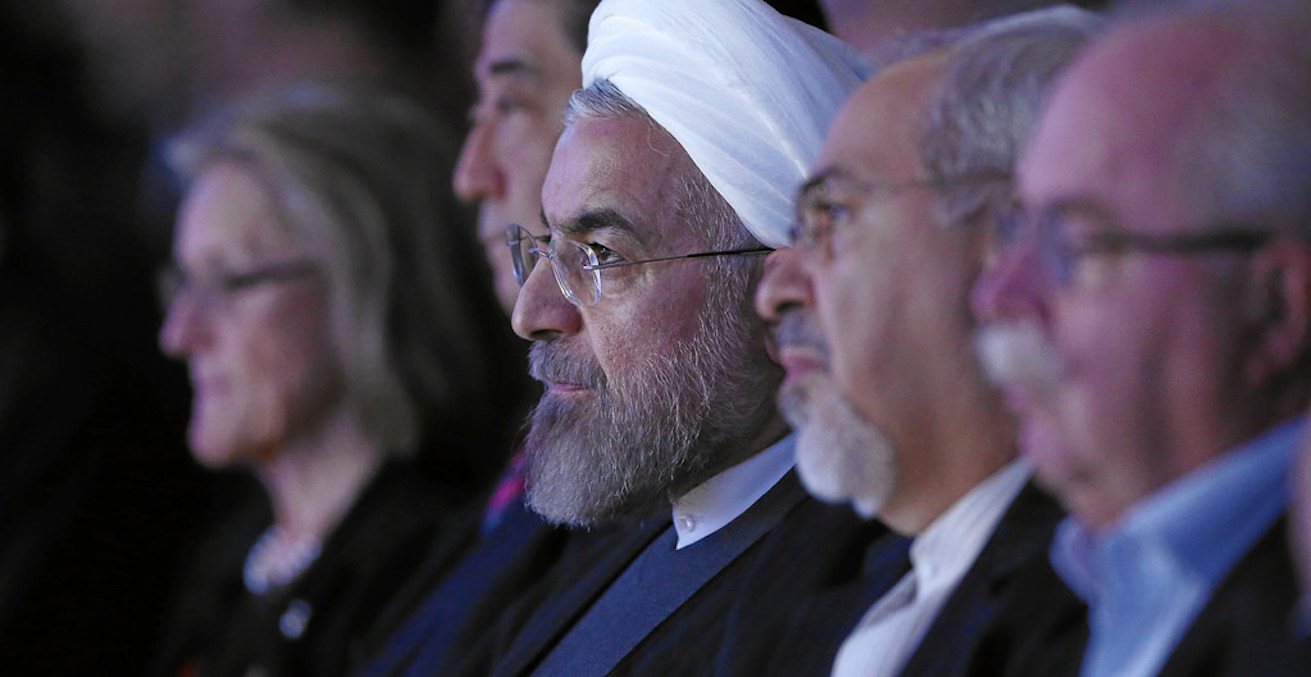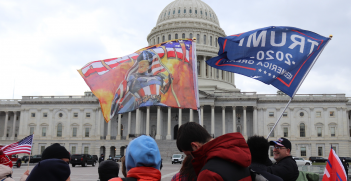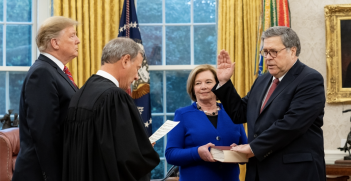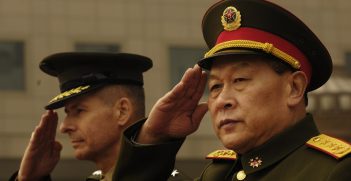Rouhani in an Uphill Battle to Save the Deal

Iranian President Hassan Rouhani has been an ardent advocate of the nuclear deal and has staked his political fortune on its success. While he investigates ways of saving the deal, internal opposition is gathering pace and may push Iran towards an arms race.
President Donald Trump’s decision to pull out of the nuclear deal with Iran is a serious setback for regional security. Despite his bluster that he could secure a better deal, the Joint Comprehensive Plan of Action (JCPOA) signed in July 2015 was a historic achievement.
It saw Iran give up its uranium stockpile, seriously reduce its centrifuges—drastically limiting its nuclear capacity—and submit to stringent inspection by the International Atomic Energy Agency. The inspection regime is more intrusive than what is typically required in the nuclear Non-Proliferation Treaty (NPT). The JCPOA preface acknowledges the unique nature of the accord and states that it should not set a precedent for the NPT, for fear of undermining the whole international consensus. States don’t normally concede to such external scrutiny which borders on meddling in their internal affairs. Yet Iran agreed to these measures, despite serious internal opposition, to assuage international fears regarding its nuclear program. Trump is delusional if he thinks he can get a better deal.
President Hassan Rouhani has been an ardent advocate of the nuclear deal and has staked his political fortune on its success. In 2013, he campaigned on reviving the economy and bringing Iran out of isolation. His victory in 2013 and again in 2017 offered a popular mandate for that agenda. Pushing against his critics who rejected the nuclear deal for subjugating Iran to the United States, Rouhani secured the consent of the Supreme Leader to preserve the deal and show ‘heroic flexibility’.
Unfortunately for advocates of JCPOA, the benefits of international sanctions removal have been slow to filter through Iran’s economy, evident in the bread-riots of Dec2017-Jan2018. This is partly due to the fact that just as the UN rescinded sanctions related to Iran’s nuclear program, the US renewed other sanctions that target Iran for its support of Hizbullah (designated as a terrorist organisation by the United States) and imposed new sanctions in response to Iran’s ballistic program. Despite these setbacks, Rouhani has remained committed to working with the international community and ending Iran’s isolation. In that vein, Rouhani has reached out to Europeans to save the deal.
Ultimately Iran will make an assessment of the benefits of maintaining the deal if US sanctions act as a deterrent for major international investment in Iran. The US could penalise companies that deal with Iran and throw a major risk factor into the equation. While Rouhani is investigating ways of saving the deal externally, internal opposition is gathering pace. The Islamic Revolutionary Guard Corps (IRGC) has done everything in its power to torpedo the agreement, including the ballistic missile test of 2017, as a show of force. It is not surprising that IRGC was amongst the first to welcome Trump’s decision. The prospects of JCPOA failure has seriously undermined Rouhani’s capacity to contain his hard-line critics and argue against their militant vision for Iran.
In that alternative vision, Iran’s standing in the region and capacity to defend itself is eroded by the increasingly hostile Saudi Arabia, the world’s third biggest military spender. The Saudi war in Yemen targets Iran’s local allies and Riyadh’s commitment to regime-change in Syria and endorsing the US in designating the Lebanese Hizbullah as a terrorist organisation are conspicuous attempts at undermining Iran’s regional reach. A new Saudi-Israel-US axis has emerged, and it presents Iran with threatening prospects. The late Saudi King Abdullah famously exhorted the United States in private communications to ‘cut off the head of the snake’ in 2010, and Israeli Prime Minister Netanyahu has used every opportunity to lobby the US for military action against Iran. Now with President Trump in office, these calls for action appear to have found a receptive ear.
Against this backdrop of diminishing economic rewards and increasingly threatening security environment, Iran may well question the value of JCPOA. The Iranian leadership might consider the fate of Saddam Hussein and Moammar Qaddafi, both of whom gave up their weapons of mass destruction to break out of isolation, only to fall prey to military intervention. This calculation is very dangerous for the region, and could only set the Persian Gulf for an arms race with obvious incentives for the weaponisation of nuclear technology. Rouhani may not have given up on JCPOA yet, but the prospects look dim.
Professor Shahram Akbarzadeh is convenor of the Middle East Studies Forum at the Alfred Deakin Institute at Deakin University. He is the author of ‘Iran’s Uncertain Standing in the Middle East’ in The Washington Quarterly and co-author of the Middle East Politics and International Relations. Follow him on Twitter @S_Akbarzadeh
This article is published under a Creative Commons Licence and may be republished with attribution.





